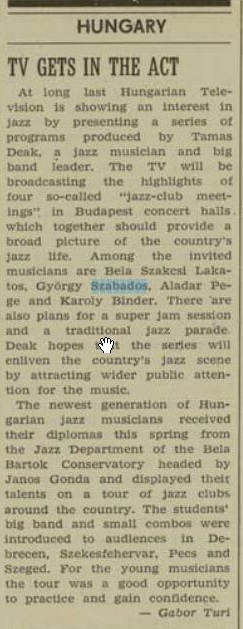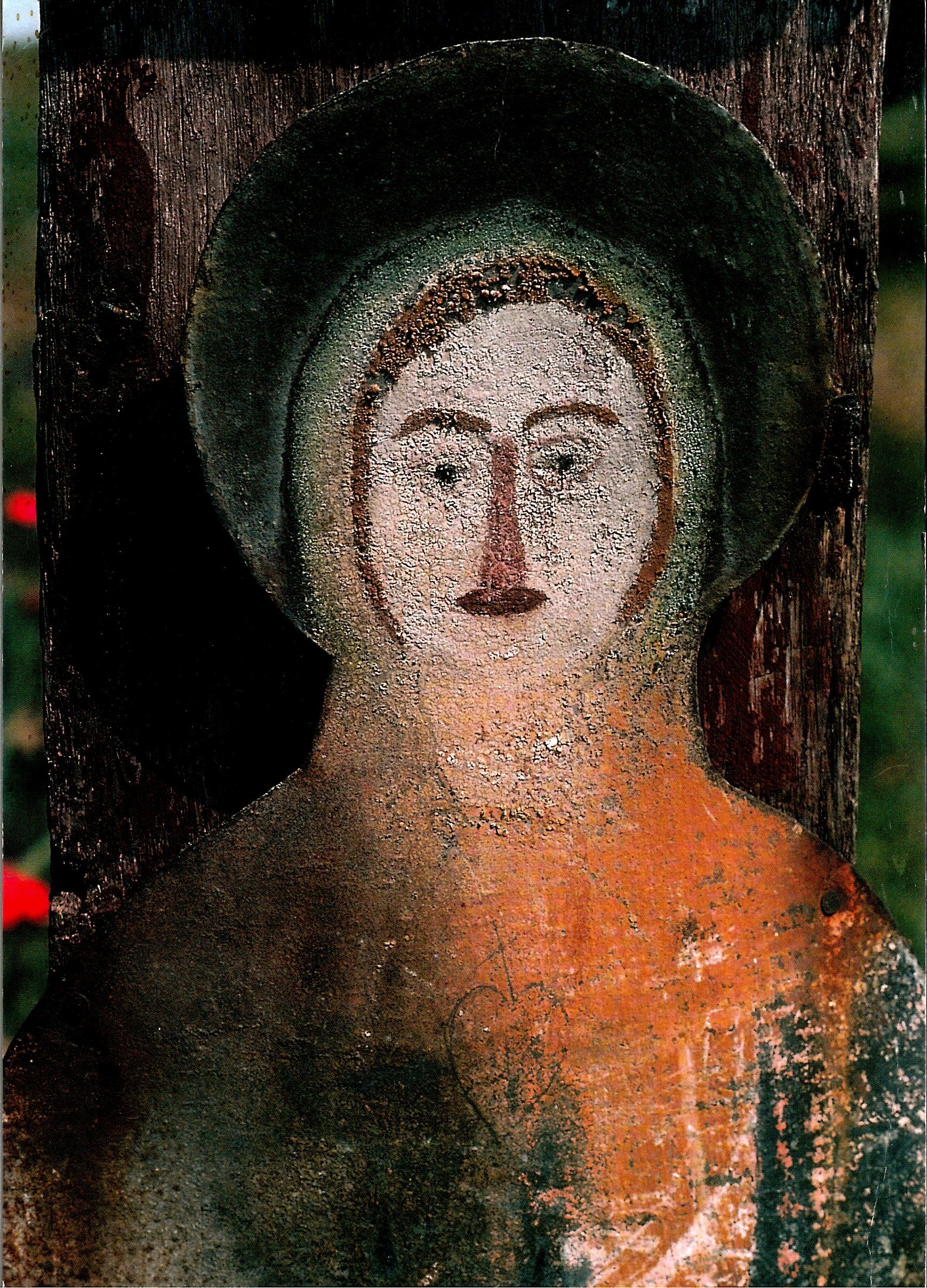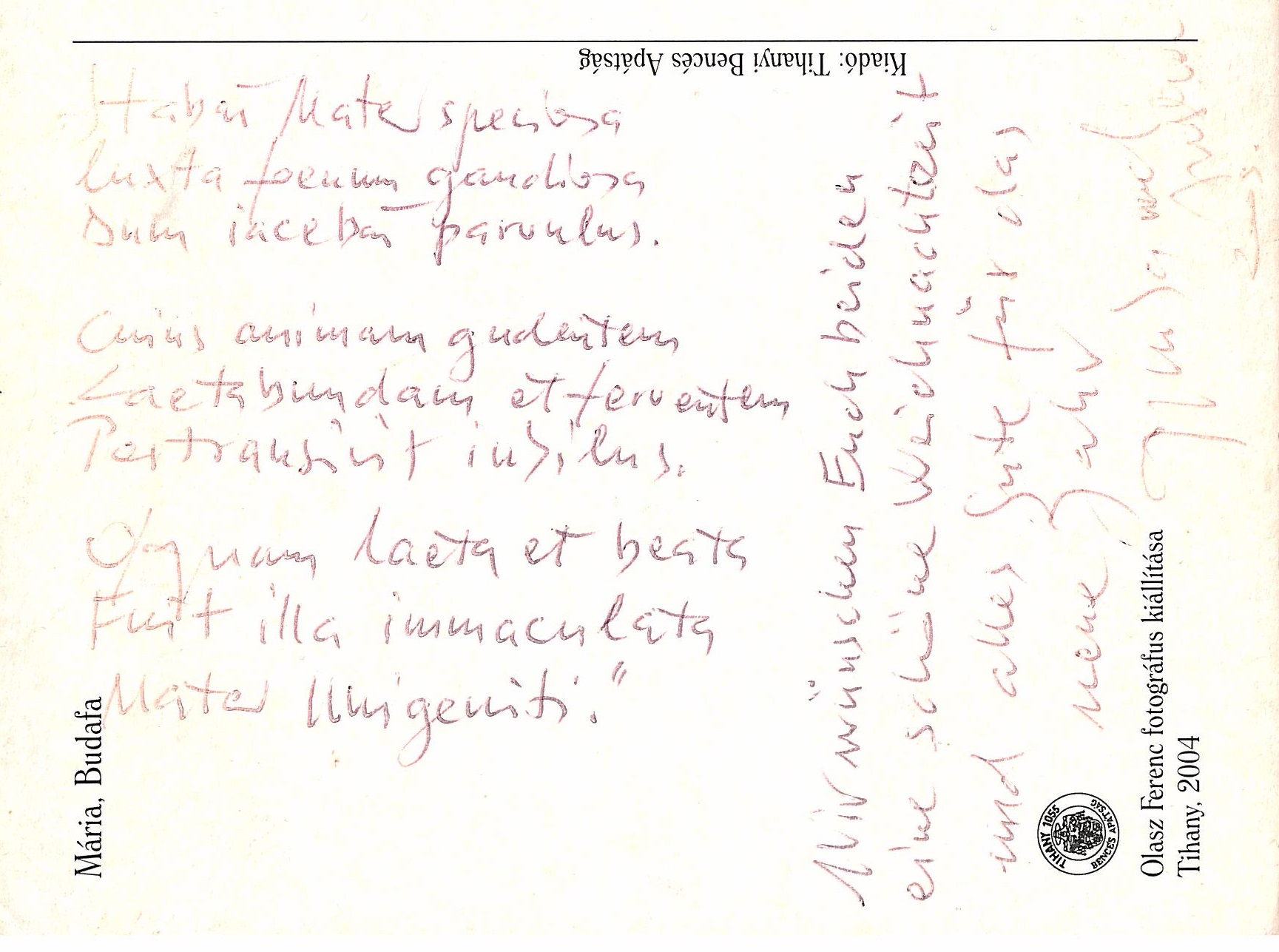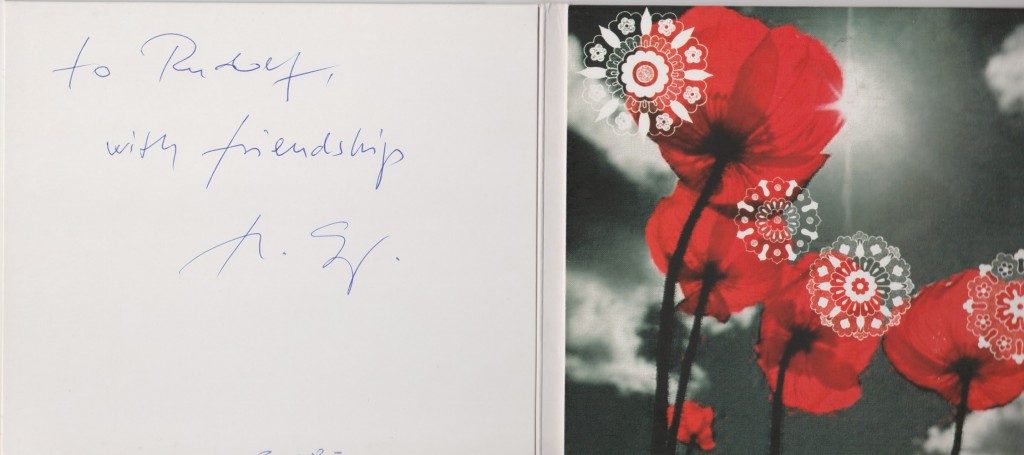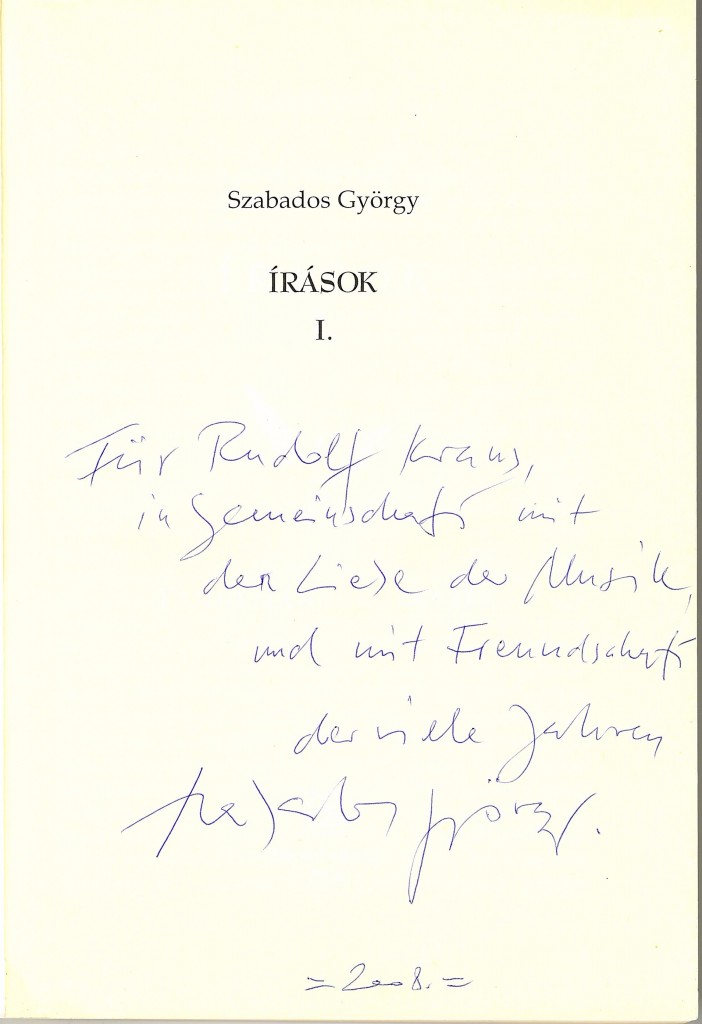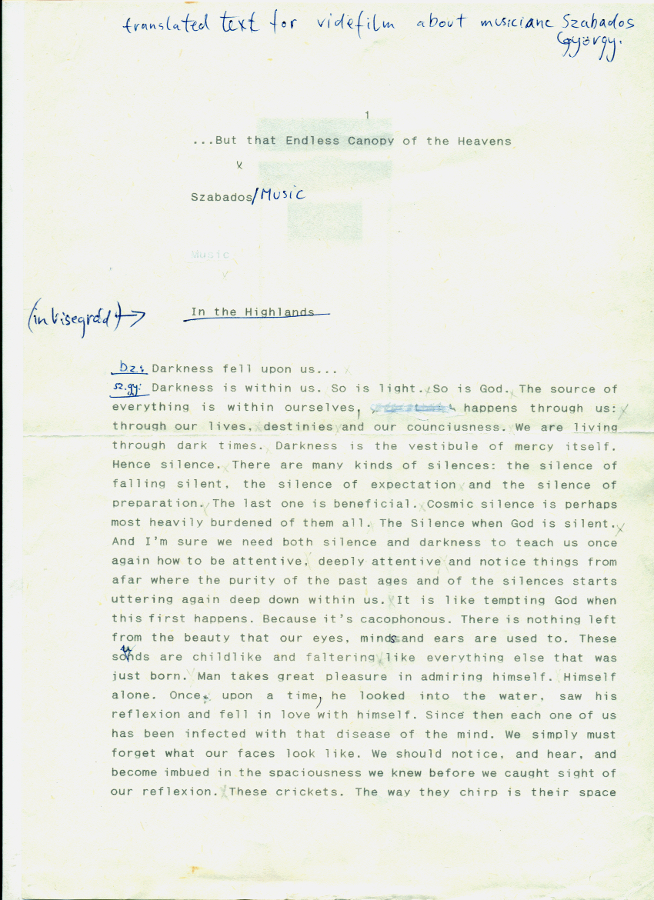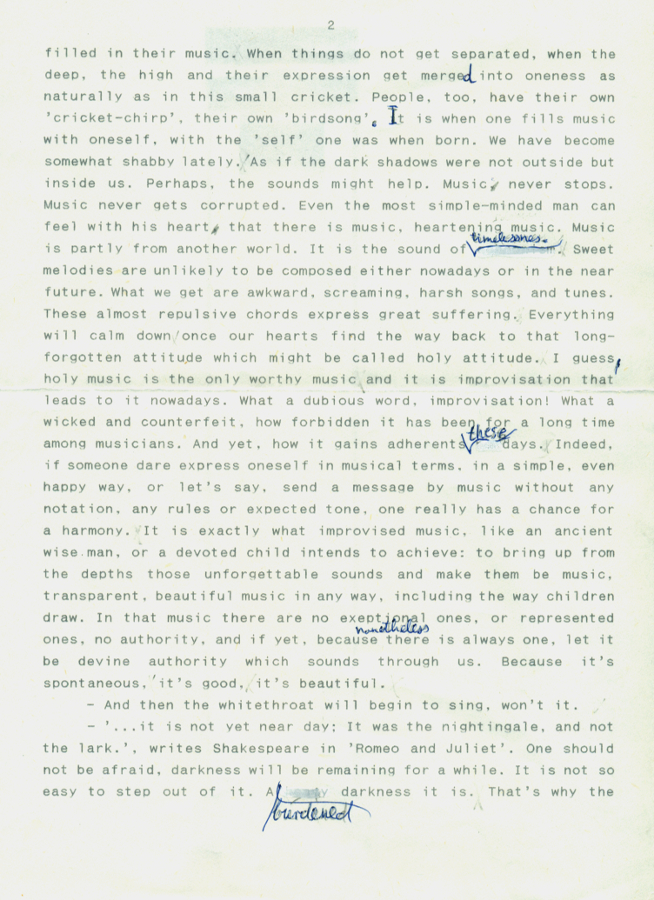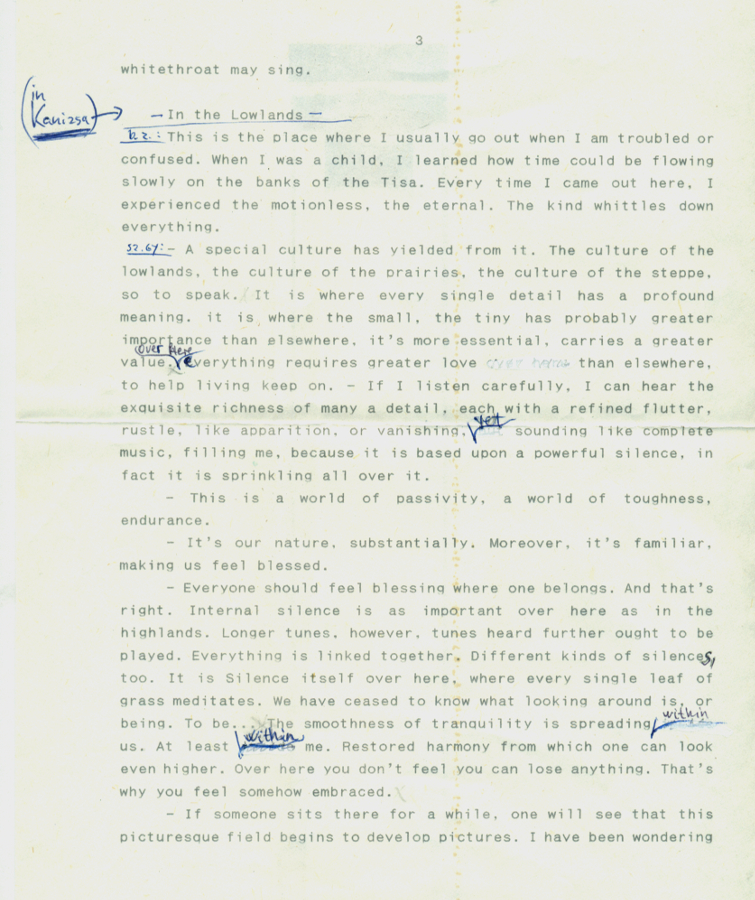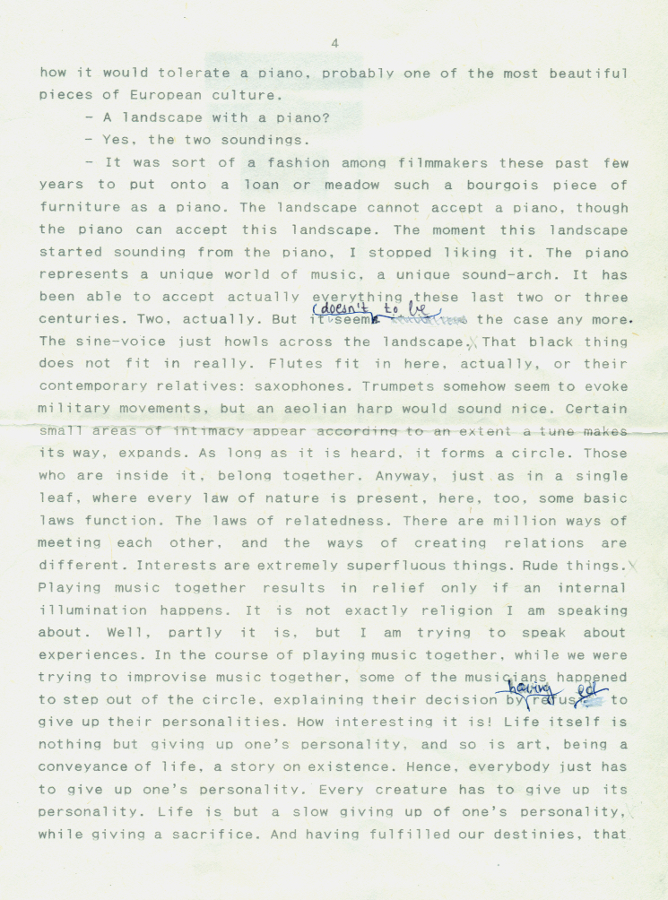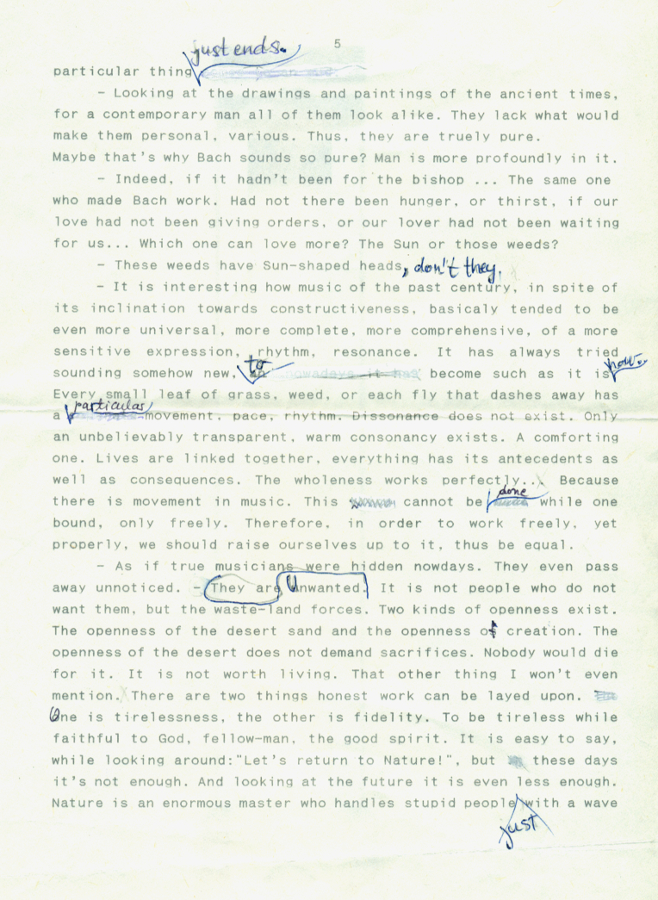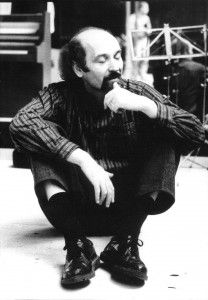
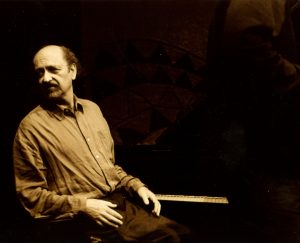
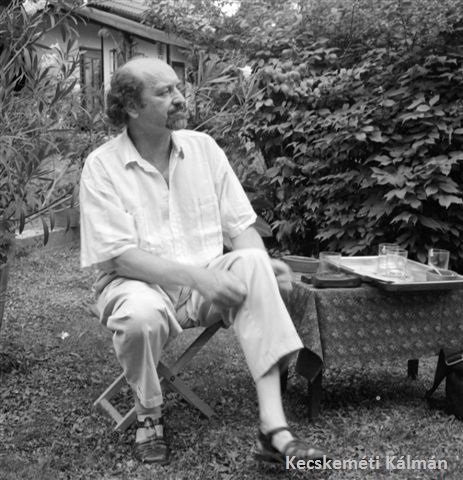
- Greetings from György
- Personal dedications from György
- Video Montage to 'Forgotton Song/Elfelejtett ének'
- Homage György Szabados - Video Montage
- Info Liner Notes: 'Kovács Ferenc - Magony String Orchestra'
- Jazz Forum 1986/6
- Turi Gábor - Jazz instrumental in freedom for Eastern countries
- Fülöp Péter - A Szépség teremtő kauzalitása - fény(kép)film - 2013.
- JAZZ FROM HUNGARY by GÁBOR TURI - BUDAPEST, 1987
- Communism and the Emergence of the Central European Jazz School
- Jazz Forum No.87 / 1984
- Type-written original english translation to Szabados György & Bicskei Zoltán film essay: "…hanem ez a hatalmas égbolt…"
- Szabados on improvisation (draft press materials)
Christmas postcard from György and Judit Szabados 2008:
Stabat Mater speciosa
Iuxta foenum gaudiosa
Dum iacebat parvulus
Cuius animam gaudentem
Laetabundam et ferventem
Pertransivit iubilus
O quam laeta et beata
Fuit illa immaculata
Mater unigeniti!
German translation by K.Eitner
Stand die Mutter da, die hohe,
die ob ihres Kindleins frohe,
das in armer Krippe lag
Deren Seele, voll Entzücken,
strahlt aus ihren Freudenblicken,
jubelt in des Herzens Schlag.
Welche sel’ge,
wonnerweckte Mutter war die
Unbefleckte ob des Eingeborenen!
English translation by unknown author
The beautiful Mother
stood joyously at the crib
in which her child lay
Through her exultant soul
Dancing with joy
Went a song of rejoicing
O how jubilant and blessed
was the immaculate
Mother of the Only-begotten
Kovác Ferenc – Magony:
[2003.06.13.]
A review was published about the new album titled “Magony String Orchestra” in the summer number of the Gramophone Magazine (8th volume 2nd number):
I have a new friend from South India who told me that according to his old master the greatest artists can see music, they are able to experience it in its most plastic form, and their functions of life seem to work in harmony with it. On the cover of the Magony String Orchestra’s album György Szabados writes that Ferenc Kovács’s music is “visible”. Szabados is right – somewhere deeply things work in the same way all over the world. When I was writing about the first Magony album (Gramophone, the autumn of 2001, 34th) I did not dare to declare what is sure for me when I listen to the new double album that Kovács is the greatest well known violinist rooted in folk music all over the country. His qualifications contribute in an ideal proportion to his inherited Hungarian-rustic sounding, his idea of freedom. The members of his orchestra (Sándor Budai, Kálmán Oláh, Beáta Salamon – violin, Csaba Novák – double bass, Ferenc Németh – voice) are all highly qualified musicians with qualifications in classical music. The Magony compositions – especially in the concert recordings of the first album, but also in the accompaniment written for the TranzDanz company – evoke with a good sense of proportion the boundless, flitting and grieving freedom of the Hungarian folklore which is never bombastic. His rhytms are always very precise – his qualification is manifested the most obviously at this point – and they give an artistic limit to the cantating sound of the violin. The world of his music evokes the Hungarian people’s most ancient memories by an intensive force. Ferenc Kovács’s French horn can also be heard at the end of the first disc – the solo in the folk song played commemorating Imre Soós is simply beautiful. We are grateful to the Gramy Publishing House which published this precious production without any support, only by its own resources.
Club for the Avant-garde
University clubs often provide fertile ground for new developments in jazz. The jazz club of the Economics University is one which, in this experimental tradition, offers a well-rounded program of avant-garde jazz. Leading Hungarian performers of the genre are regularly featured in Saturday evening programs which have included György Szabados, The Dresch Quartet, the Grencsó Kollektíva, Károly Binder, and Attila Lőrinszky.
In addition to local musicians, the organizers occasionally invite musicians from abroad. As a result, the club’s small but enthusiastic audience has met many personalities from the East German jazz scene, E. L. Petrowsky, Conny Bauer, Uwe Kropinsky, Ulrich Gumpert, Hannes Zerbe, Günter Sommer, Klaus Koch, Manfred Hering, and Joe Sachse among them. Appearances were also made by Elliott Sharp and The Carbon (USA), the Peter Brötzmann-Phil Minton duo (West Germany and England), Jiri Stivin (Czechoslovakia), and Leonid Chizhik (SU). This falil the Steve Lacy-Steve Potts duo and the Ganelin Trio were the most prominent guest stars in the jazz club which earned the reputation as the capitol’s center of avant-garde.
Juri Gábor (Jazz Forum, 1986/6)
Jazz instrumental in freedom for Eastern countries
Some musicians drew a circle of musicians around them. György Szabados created his own musical world based on Hungarian pentatonic folk songs, jazz improvisation and contemporary harmonies. The avant-garde music, often labeled as “Eastern-European New Wave,” gained a surprising popularity in the 80’s in Hungary, represented by musicians as pianists Szabados, Károly Binder, saxophonists Mihály Dresch and István Grencsó.
Turi Gábor – The Virginian Pilot/Ledger Star, 1991. Norfolk, Virginia, USA
Essay by Yvetta Kajanová, June 2012, published: Journal of Literature and Art Studies, ISSN 2159-5836 June 2012, Vol. 2, No. 6, 622-640
Read/Download as pdf
TV Gets in the Act – Announcement of TV Broadcasting of Szabados Concert held in the Series “Jazz-Club meetings” in Budapest published in Jazz Forum, 1984/2 by Gábor Turi
